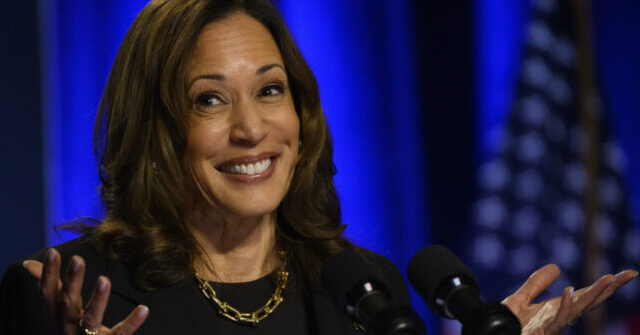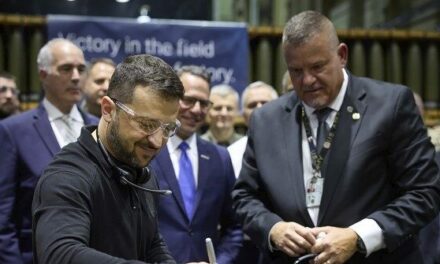We support our Publishers and Content Creators. You can view this story on their website by CLICKING HERE.

The growth of orders placed with American factories for durable goods stagnated in August, casting a shadow on claims by Vice President Kamala Harris that the Biden-Harris administration’s policies have bolstered U.S. industrial strength.
The value of durable goods orders did not rise at all in August, the Commerce Department said Thursday.
This was, however, better than expected. Economists had forecast orders would decline by 2.7 percent. In July, orders jumped 9.9 percent, a slight upward revision from the earlier estimate of 9.8 percent.
Core capital goods orders, a measure which excludes volatile sectors like transportation and defense and is considered a proxy for business investment, rose by a tepid 0.2 percent last month after a 0.2 percent drop in July.
On the campaign trail, Harris has frequently said that the U.S. factory sector has benefited from the policies of the Biden-Harris administration. Over the past two years, however, core capital goods orders have not grown at all. The August 2024 figure is actually slightly below the August 2022 figure. Compared with the first eight months of last year, core goods orders are up by a slightly 0.3 percent.
“From our earliest days, America’s economic strength has been tied to our industrial strength,” Harris said in what was billed as a major economics campaign speech on Wednesday. “The same is true today. So I will recommit the nation to global leadership in the sectors that will define the next century.”
Uncertainty around the November presidential election has caused businesses to pull back from investment and pause expansion plans. Employment in the manufacturing sector has declined by 34,000 jobs over the last three months, according to the Department of Labor. Manufacturing employment has been essentially stagnant for two years, despite billions of subsidies poured into the sector by the Biden-Harris administration.
Harris has said she plans large tax increases on businesses if elected and has criticized Donald Trump’s proposals to impose tariffs on imported goods to benefit domestic manufacturers.
The pre-election slowdown suggests that the manufacturing sector is likely to struggle to grow in the coming months—and perhaps for years depending on the outcome of the election.
Overall durable goods orders are up 4.7 percent over the past two years. Year-to-date, orders are down 1.3 percent compared with last year.
The durable goods order figures are not adjusted for inflation.
Global conflict is still pumping money into the factory sector. Orders for defense capital goods rose 5.3 percent in August and orders for defense aircraft and parts rose 8.3 percent.
Orders for aircraft are extremely volatile given the large price tags of commercial aircraft. In August, nondefense aircraft orders fell 7.5 percent.
Orders for cars, trucks, and parts rose 0.3 percent in August. Excluding transportation, orders were up 0.5 percent.
Orders rose for machinery, computers, and appliances. Orders for metals such as steel and aluminum increased, as did goods produced from metals.

 Conservative
Conservative  Search
Search Trending
Trending Current News
Current News 







